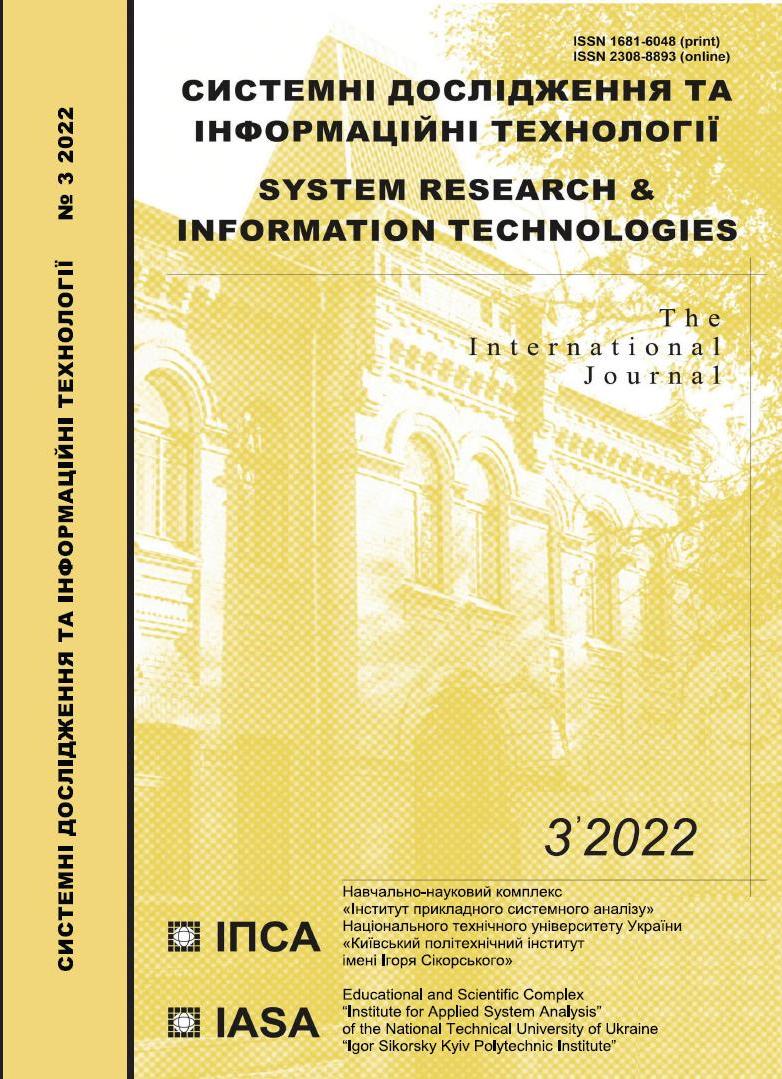Resource scheduling in edge computing IoT networks using hybrid deep learning algorithm
DOI:
https://doi.org/10.20535/SRIT.2308-8893.2022.3.06Keywords:
edge computing, cloud computing, Internet of Things, IoT, resource scheduling, deep learningAbstract
The proliferation of the Internet of Things (IoT) and wireless sensor networks enhances data communication. The demand for data communication rapidly increases, which calls the emerging edge computing paradigm. Edge computing plays a major role in IoT networks and provides computing resources close to the users. Moving the services from the cloud to users increases the communication, storage, and network features of the users. However, massive IoT networks require a large spectrum of resources for their computations. In order to attain this, resource scheduling algorithms are employed in edge computing. Statistical and machine learning-based resource scheduling algorithms have evolved in the past decade, but the performance can be improved if resource requirements are analyzed further. A deep learning-based resource scheduling in edge computing IoT networks is presented in this research work using deep bidirectional recurrent neural network (BRNN) and convolutional neural network algorithms. Before scheduling, the IoT users are categorized into clusters using a spectral clustering algorithm. The proposed model simulation analysis verifies the performance in terms of delay, response time, execution time, and resource utilization. Existing resource scheduling algorithms like a genetic algorithm (GA), Improved Particle Swarm Optimization (IPSO), and LSTM-based models are compared with the proposed model to validate the superior performances.
References
Vishnu Kumar Kaliappan, S. Gnanamurthy, and K. Mohanasundaram, “Reduced power consumption by resource scheduling in mobile cloud using optimized neural network,” Materials Today: Proceedings, vol. 46, no.15, pp.6453–6458, 2021.
Yanling Shao, Chunlin Li, and Youlong Luo, “Cost-effective replication management and scheduling in edge computing,” Journal of Network and Computer Applications, vol.129, pp. 46–61, 2019.
Xiao Ma, Shangguang Wang, Shan Zhang, Peng Yang, Chuang Lin, and Xuemin Shen, “Cost-Efficient Resource Provisioning for Dynamic Requests in Cloud Assisted Mobile Edge Computing,” IEEE Transactions on Cloud Computing, vol. 9, no. 3, pp. 968–980, 2021.
Yongsheng Hao, Jie Cao, and Jinglin Du, “Energy-aware scheduling in edge computing with a clustering method,” Future Generation Computer Systems, vol.117, pp.259–272, 2021.
Jun Liu, Tianfu Yang, and Bo Sun, “Resource allocation and scheduling in the intelligent edge computing context,” Future Generation Computer Systems, vol.121, pp. 48–53, 2021.
Quyuan Luo, Shihong Hu, Changle Li, Guanghui Li, and Weisong Shi, “Resource Scheduling in Edge Computing: A Survey,” IEEE Communications Surveys & Tutorials, vol. 23, no. 4, pp. 2131–2165, 2021.
Xiaomin Li, Jiafu Wan, Hong-Ning Dai, Muhammad Imran, Min Xia, and Antonio Celesti, “A Hybrid Computing Solution and Resource Scheduling Strategy for Edge Computing in Smart Manufacturing,” IEEE Transactions on Industrial Informatics, vol. 15, no. 7, pp. 4225–4234, 2019.
Samrat Nath and Jingxian Wu, “Deep reinforcement learning for dynamic computation offloading and resource allocation in cache-assisted mobile edge computing systems,” Intelligent and Converged Networks, vol. 1, no. 2, pp. 181–198, 2020.
Lin Wang, Lei Jiao, Jun Li, Julien Gedeon, and Max Mühlhäuser, “MOERA: Mobility-Agnostic Online Resource Allocation for Edge Computing,” IEEE Transactions on Mobile Computing, vol. 18, no. 8, pp. 1843–1856, 2019.
Fengjun Zhao, Ying Chen, Yongchao Zhang, Zhiyong Liu, and Xin Chen, “Dynamic Offloading and Resource Scheduling for Mobile-Edge Computing With Energy Harvesting Devices,” IEEE Transactions on Network and Service Management, vol. 18, no. 2, pp. 2154–2165, 2021.
Yuan Zhang, Peng Du, Jiang Wang, Teer Ba, Rui Ding, and Ning Xin, “Resource Scheduling for Delay Minimization in Multi-Server Cellular Edge Computing Systems,” IEEE Access, vol. 7, pp. 86265–86273, 2019.
Bin Zhang and Dexu Chen, “Resource scheduling of green communication network for large sports events based on edge computing,” Computer Communications, vol.159, pp. 299–309, 2020.
Qi Zhang, Lin Gui, Shichao Zhu, and Xiupu Lang, “Task Offloading and Resource Scheduling in Hybrid Edge-Cloud Networks,” IEEE Access, vol. 9, pp. 85350–85366, 2021.
Hyame Assem Alameddine, Sanaa Sharafeddine, Samir Sebbah, Sara Ayoubi, and Chadi Assi, “Dynamic Task Offloading and Scheduling for Low-Latency IoT Services in Multi-Access Edge Computing,” IEEE Journal on Selected Areas in Communications, vol. 37, no. 3, pp. 668–682, 2019.
Tong Liu, Yameng Zhang, Yanmin Zhu, Weiqin Tong, and Yuanyuan Yang, “Online Computation Offloading and Resource Scheduling in Mobile-Edge Computing,” IEEE Internet of Things Journal, vol. 8, no. 8, pp. 6649–6664, 2021.
Umber Saleem, Yu Liu, Sobia Jangsher, Yong Li, and Tao Jiang “Mobility-Aware Joint Task Scheduling and Resource Allocation for Cooperative Mobile Edge Computing,” IEEE Transactions on Wireless Communications, vol. 20, no. 1, pp. 360–374, 2021.
Jiaying Meng, Haisheng Tan, Xiang-Yang Li, Zhenhua Han, and Bojie Li, “Online Deadline-Aware Task Dispatching and Scheduling in Edge Computing,” IEEE Transactions on Parallel and Distributed Systems, vol. 31, no. 6, pp. 1270–1286, 2020.
Haitao Yuan and MengChu Zhou, “Profit-Maximized Collaborative Computation Offloading and Resource Allocation in Distributed Cloud and Edge Computing Systems,” IEEE Transactions on Automation Science and Engineering, vol. 18, no. 3, pp. 1277–1287, 2021.
Youngjin Kim, Chiwon Song, Hyuck Han, Hyungsoo Jung, and Sooyong Kang, “Collaborative Task Scheduling for IoT-Assisted Edge Computing,” IEEE Access, vol. 8, pp. 216593–216606, 2020.
Yu Liu, Yong Li, Yong Niu, and Depeng Jin, “Joint Optimization of Path Planning and Resource Allocation in Mobile Edge Computing,” IEEE Transactions on Mobile Computing, vol. 19, no. 9, pp. 2129–2144, 2020.
Wenhan Zhan et al., “Deep-Reinforcement-Learning-Based Offloading Scheduling for Vehicular Edge Computing,” IEEE Internet of Things Journal, vol. 7, no. 6, pp. 5449–5465, 2020.
Yi-Han Chiang, Tianyu Zhang, and Yusheng Ji, “Joint Cotask-Aware Offloading and Scheduling in Mobile Edge Computing Systems,” IEEE Access, vol. 7, pp. 105008–105018, 2019.
Shuaishuai Guo, Dalei Wu, Haixia Zhang, and Dongfeng Yuan, “Resource Modeling and Scheduling for Mobile Edge Computing: A Service Provider’s Perspective,” IEEE Access, vol. 6, pp. 35611–35623, 2018.
Tien Van Do, N.H. Do, and Peter Hegyi, “Comparison of scheduling algorithms for multiple mobile computing edge clouds,” Simulation Modelling Practice and Theory, vol. 93, pp. 104–118, 2019.
G. Vijayasekaran and M. Duraipandian, An Efficient Clustering and Deep Learning Based Resource Scheduling for Edge Computing to Integrate Cloud-IoT. Wireless Pers Commun. 2022. Available: https://doi.org/10.1007/s11277-021-09442-8.

